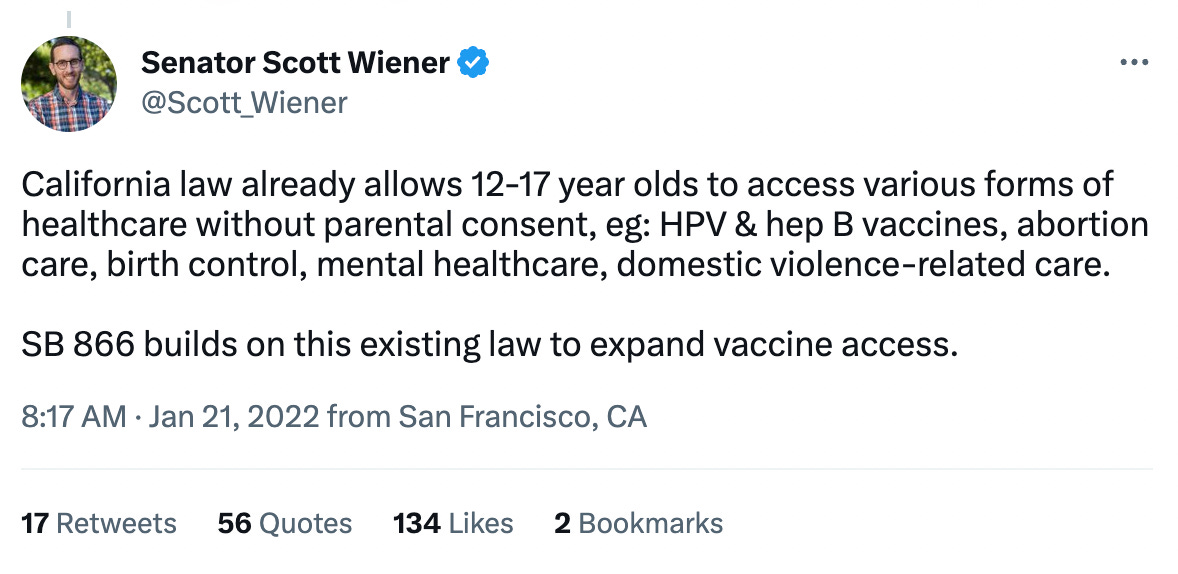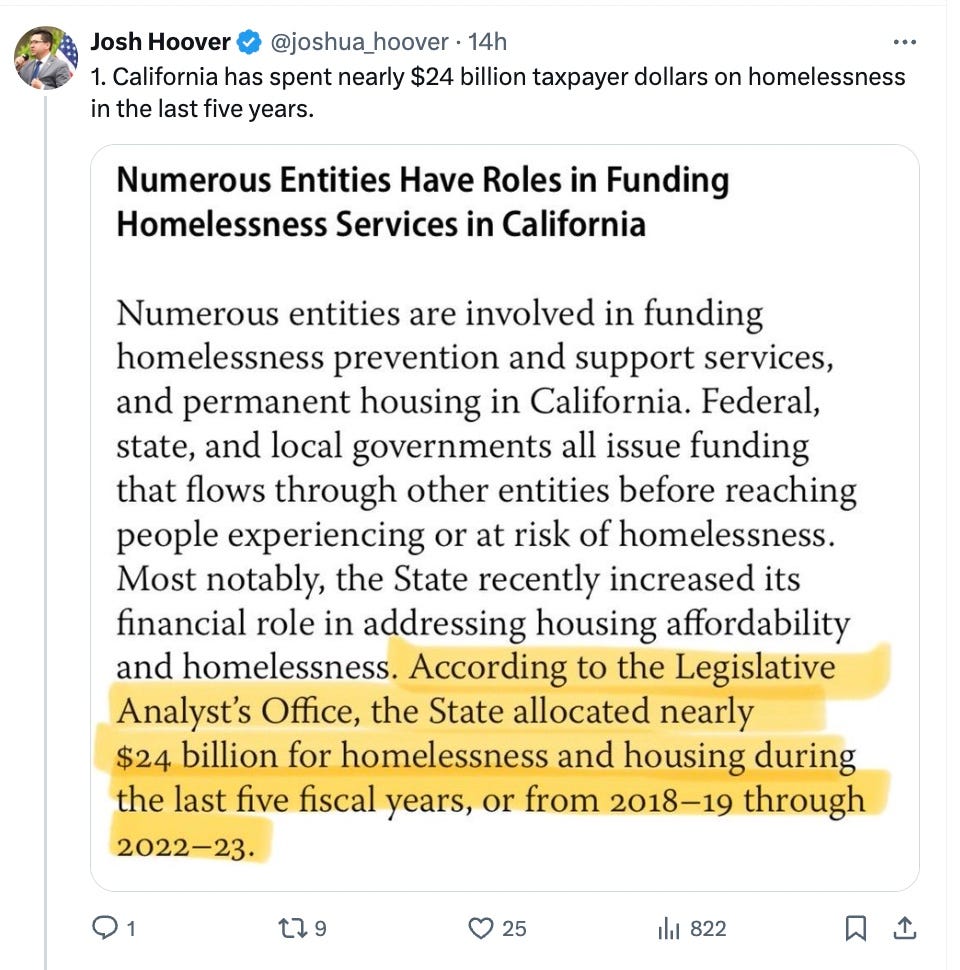I’ll start with California, but then show the same effect in a national context. What happens in the Khmer Rouge state is always just the most obvious expression of larger trends.
Opening paragraphs of a remarkable story at CalMatters:
Mike Fong has cast more than 6,000 votes since he joined the state Assembly in 2022 and never once voted “no.” Pilar Schiavo is newer to the Assembly, but she has yet to vote “no” after more than 2,000 opportunities.1
Remarkably, their Democratic colleagues in the Legislature are not much different. Using our new Digital Democracy database, CalMatters examined more than 1 million votes cast by current legislators since 2017 and found Democrats vote “no” on average less than 1% of the time.
How on earth do legislators never vote no? They manage it through a system in which Democrats, having a supermajority in both houses of the legislature, never have to face a bill that they might oppose with an open vote. Democrat-run committees quietly steer Republican or otherwise heterodox bills into the wall through calculated inaction; they sit silently through committee votes, or neglect to get a bill through committee through scheduling choices. Example from the CalMatters story regarding a bill to enhance the threat of punishment for fentanyl dealers whose customers suffer fatal overdoses:
In a glaring example they found, a bill had 22 bipartisan cosponsors and would likely pass if it reached the Senate floor, but it died in the Senate Public Safety Committee when the four Democrats — Nancy Skinner, Steven Bradford, Aisha Wahab and Scott Wiener — declined to vote by staying silent during the roll call. None of them responded to interview requests.
Whoops, your bill isn’t going to reach the floor. What a shame. They just blocked another bill regarding fentanyl dealers, by the way. Try to spot the theme.
These maneuvers very, very, very rarely fail. A famous example of the opposite came last year with a bill from Republican Senator Shannon Grove that classified child sex trafficking as a serious felony under the state’s “three strikes” law, adding to the list of crimes eligible for extra sentencing after repeat offenses. Few things are dearer to the heart of California Democrats than the sexualization of delicious 12 year-olds….
….so Democrats withheld votes in committee, stalling the bill. But protecting pimps who repeatedly sell children for sex was a bridge too far, amazingly enough, and a wave of public pressure forced even Scott Wiener to pretend to oppose sex with children. The bill returned, committee members actually voted, the bill reached the floor, and the thing was signed into law.
But this maneuver, using public pressure to force the Democratic-supermajority legislature to take up bills it doesn’t like, is a unicorn. It just doesn’t show up that often, in a state where the governor routinely signs over a thousand new bills into law every year and several hundred die unnoticed. The public can’t pay attention to the entire flood of annual legislation, and bills that Democrats wish to lose in the process mostly do get lost.
So legislation in California isn’t debated; the CalMatters story includes a quite colorful quote from a former legislative leader who says that there’s a red button and green button on a legislator’s desk, and your job is to shut up and press the green button.
The effect of this culture of no actual debate is that favored programs just exist, full stop. Do they work? Look, you were told to shut up. Favored things, the party will direct you to press the green button; unfavored things, the party says to sit quietly and do nothing while the bill is allowed to die in committee.
Republican Assemblyman Josh Hoover, despite a professional background that’s in every way the usual never-had-a-job career of a person with degrees in politics who works as a legislative staffer until he runs for a seat in the legislature, has done something useful: He’s pushed the state auditor to carefully evaluate the effects of California’s spending on homelessness. The state has spent — wait, I’ll have him tell you:
I would only object to the “despite.” You get more of the things you subsidize, and you get less of the things you penalize. Complicated, I know.
But the state auditor has performed a remarkable service, showing just how much of a disaster California’s homelessness programs have been. You can read the full report of the auditor here, and a separate report that focuses more narrowly on two large counties here. The debate about these reports should be pretty intere— oh, wait.
See also:
The homeless services complex grows and grows and grows, and so does homelessness. It’s an enormous industry, but whoops, no one tracks the spending.
Things that aren’t debated and evaluated don’t work. The culture of narrative enforcement, dissent-shaming, shadowbanning, and alleged disinformation policing produces a vacuum in which practical effects disappear.
Q: Where has our aid to Ukraine gone?
A: OH YOU LOVE PUTIN
The inevitable result of “I’m for [current thing]” is lucrative worthlessness — a slop of free cash that leaks out into a bunch of pockets without accomplishing its stated objectives. And weirdly enough, this exact brand of leaky, unaudited spending keeps happening all over the place.
California, by the way, has a path around the debate-free and rigidly partisan legislative culture: ballot referendums, which allow popular movements to directly ask the voters to change the law. So the legislature is working on a bill to make ballot measures much harder and much more expensive for organizers.
Not accidentally, the two legislators named here are charter members of the apparatchik class. Mike Fong is my assemblyman: almost 50, unmarried and childless, has never had a job outside of politics (“a lifelong public servant”). Pilar Schiavo is a particularly dimwitted and repellent labor organizer who has spent her entire life being an activist. People like this don’t struggle with their conscience when the party manipulates the legislative process.





Do the math. $24 billion spent over 5 years is almost $5 billion per year. Divide that by the homeless population of 188K and that's $27,500 per person per year. That's either $2,300 per month for rent or almost $600 per week for groceries.
But as that video showed, the bulk of the $24 billion goes to the administrative costs necessary to deliver a sandwich , an apple, a cookie and a bottle of water to the handful of homeless they can find when not sitting in Starbucks.
It's people farming. The bigger the crop (the homeless), the more farmers you need. That's why homelessness is a "growing" problem.
Pol Pot would be proud of Mike Fong. Cambodia is a case study of how a small militant extremist minority destroyed an entire country. Our job is to prevent that from happening to California and America.
Fong is a diverse AWFL DEI: https://yuribezmenov.substack.com/p/awfl-dei-karen-affluent-white-female-liberal